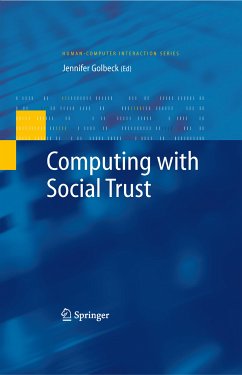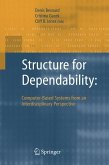In bringing together important research in computing social trust from both computer science and related disciplines, this book provides an invaluable overview of the area. Divided into three parts, the first - Models of Social Trust - addresses theory, behaviour and trust management, analysing how trust is developed, the dynamics of trust relationships, and systems for trust management. Part Two - Propagation of Trust - describes algorithms and methods for computing trust in social contexts. Social networks, profile similarity, and participation in online communities are all sources from which trust can be computed. The final part - Applications of Trust - contains applications such as recommender systems, website access control, and email filtering, where trust can improve functionality.
With contributions from leading researchers in the area of social trust, this book will be welcomed by researchers and graduate students in computer science and information systems, as well as those working in related disciplines where trust may be an issue (such as communications and psychology).
Dieser Download kann aus rechtlichen Gründen nur mit Rechnungsadresse in A, B, BG, CY, CZ, D, DK, EW, E, FIN, F, GR, HR, H, IRL, I, LT, L, LR, M, NL, PL, P, R, S, SLO, SK ausgeliefert werden.
"Social trust is becoming fundamental in computer science (CS), distributed systems, multiagent systems, e-commerce, and communication. This book provides a survey of the computational trust field. ... This is a commendable effort by the editor to consolidate the growing literature on computational trust in a single volume. ... it is a useful reference for both theorists and practitioners in the field of computational trust." (Haris Aziz, ACM Computing Reviews, May, 2009)









